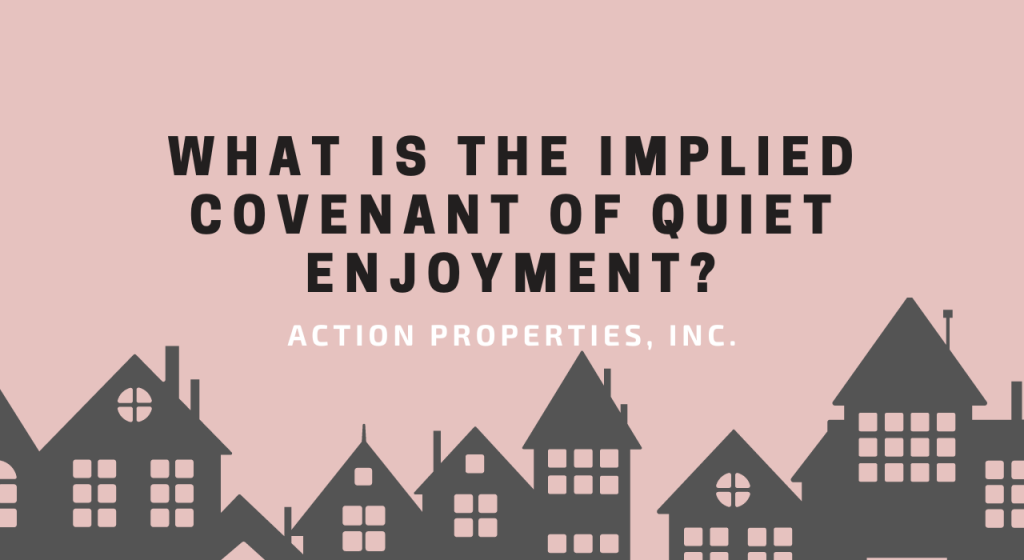
What Maintenance Issues Are Emergencies and What Can Wait For Regular Business Hours?
Are you a landlord wondering how to prioritize maintenance requests effectively? Distinguishing between emergencies that require immediate attention and issues that can wait is crucial for managing your property efficiently. This guide is tailored for landlords and aims to provide clear insights on identifying maintenance emergencies, ensuring tenant safety, and maintaining your property's value. By understanding what constitutes an urgent repair versus a routine one, you can make informed decisions, keeping your tenants satisfied and avoidin…
Continue Reading...
What is the Implied Covenant of Quiet Enjoyment?
As a rental owner, you must have a solid understanding of landlord-tenant laws. Respecting local rental laws is essential to keeping a positive working relationship with your tenants, whether it's the Fair Housing Act or security deposit regulations. Landlords need to be aware of a legal concept known as the "implied covenant of quiet enjoyment." One of your tenants' most fundamental rights is this. Breaching this covenant may have legal repercussions in addition to harming your relationship with your renters. In this article, we will go over e…
Continue Reading...
Renting Out Your Home in Mountain View: Everything You Should Consider
Converting your home into a rental property comes with several benefits. You can increase your monthly cash flow, significantly reduce any debt you might have, and also take advantage of the various tax breaks available. Investing in Mountain View real estate can be tricky but rewarding! While the benefits are many, there are considerations that you should take into account before making the move to be a landlord. Despite you being a resident of CA, property leasing is a whole new ball game. To advise you and guide you on your new journey, the …
Continue Reading...
How to Conduct a Tenant Walk-Through Inspection
What condition should your property be in when a tenant moves in? Rental inspections are essential to safeguarding the value of your property as a landlord. They assist you in identifying and resolving problems before they worsen and become expensive. A rental walk-through inspection also allows your tenant to identify any problems before they negatively impact their quality of life. You can ask a potential tenant to conduct a walk-through inspection with you before they begin renting. Landlords can use the helpful advice and guidelines in thi…
Continue Reading...
How To Write A Good Property Listing
Investment in rental real estate comes with a plethora of benefits and advantages, such as passive rental income, appreciation, tax breaks, and a hedge against inflation. This success hinges on your ability to attract a tenant to your property. And this happens through having a quality listing. A good listing needs to get a potential tenant to stop scrolling and get them to start a conversation with you. So, how should you design it? To help you design and create the best listing possible, the team from Action Properties has put together this …
Continue Reading...